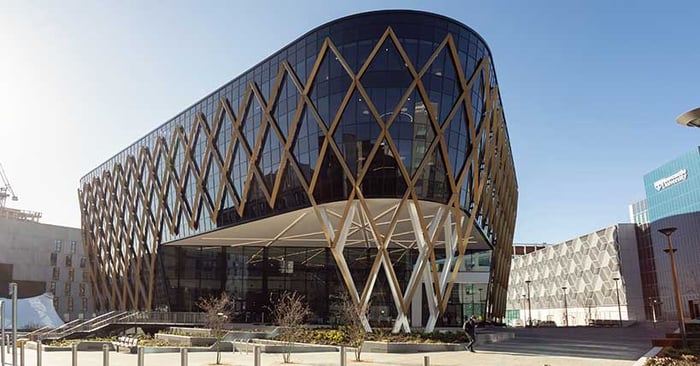
Based on Newcastle Helix in The Catalyst, the National Innovation Centre for Data (NICD) supports businesses to address gaps in data science skills. It recently ran a successful project with Connected Energy, supporting them to embed new skills into their organisation.
We talk to Director of NICD, Steve Caughey, about the project, how data can support sustainable outcomes and why now more than ever data can play a key role in the repair and recovery of our economy.
Why did Connected Energy need expertise from NICD?
Connected Energy repurposes second-life electric vehicle batteries to applications such as energy storage. This can allow the transition to more sustainable, but less reliable power generation methods such as wind or solar by storing the excess generated energy and discharging the batteries when solar or wind generation is low. Connected Energy and their customers were interested in estimating the remaining useful life of the batteries.
AWS (Amazon Web Services, the Amazon cloud) and R statistical programming language was used to query the large amount of sensor data from their deployed batteries. We then worked with them to develop statistical models to determine the relationship between battery usage and remaining capacity by measuring operating conditions and discharge rates of the batteries.
How did your teams support Connected Energy to achieve its objectives for the project?
We worked together to visualise, explore, and build models to estimate the remaining lifetime of the batteries. Data science projects require a combination of domain expertise, statistics, and computing science knowledge – working collaboratively allowed for faster progress, rather than working independently. NICD became an extension of their team and met weekly to identify and discuss challenges, progress, and outcomes.
This is not the only project Newcastle University is working on with Connected Energy. Tell us more.
Connected Energy and Newcastle University are both part of a £31m energy innovation project in West Sussex. The SmartHubs project will create and demonstrate an innovative low-carbon energy system of the future.
The project will deliver decarbonisation and grid-balancing benefits for the regional West Sussex community but will also, by using field data and validated modelling work from consortium member Newcastle University, ultimately provide guidance on how similar smart energy systems can be replicated on a UK-wide scale. This is a perfect example of now talent and expertise based right here in Newcastle is helping to tackle global issues like climate change.
How can data analyst skills have a positive impact on society and help organisations like Connected Energy achieve their sustainable goals?
Data is essentially a record of the past and we can’t expect to understand where we are today or where we are heading without understanding the past. Collection of data and the analysis of data provides the evidence for actions and interventions whether for economic, health or for social good. Without evidence, without data, we are stumbling forward in the dark.
Properly processed and analysed, data can lead to radical innovations, creating significant value
Why is this form of collaboration so important?
Data is a vital asset for businesses, but many cannot find or afford the highly skilled staff needed to maximise the value that a deep analysis of that data can provide. NICD is supported by government and University funding that enables us to sustain a team of data scientists, with a wide variety of skills, that few organisations could afford.
Collaboration with NICD allows access to data science skills to help organisations gain insight into their data, but more importantly NICD is set up to transfer those skills so that they can take this knowledge forward and embed into their organisation.
Data insights will play a critical role in the repair and recovery of our economy. Explain why.
The global economy is undergoing a data-driven revolution. A huge growth in volumes of data raises new opportunities for growth and new products and services. Properly processed and analysed, data can lead to radical innovations, creating significant value.
That’s the opportunity but there’s threat too. If businesses don’t maximise the value in their data, then existing competitors and disruptive new market entrants certainly will.
What’s next for Connected Energy and NICD?
We’re already working on the next phase of our collaboration, taking forward the insights obtained in phase 1. We’ve also plugged them into our talent pipeline from Newcastle University where Data Science MSC students are working with them to develop skills through the exploration of real-time data, gaining valuable exposure and practical skills. In future we’re hoping that we’ll be working with a growing home-grown team of Connected Energy data experts.


